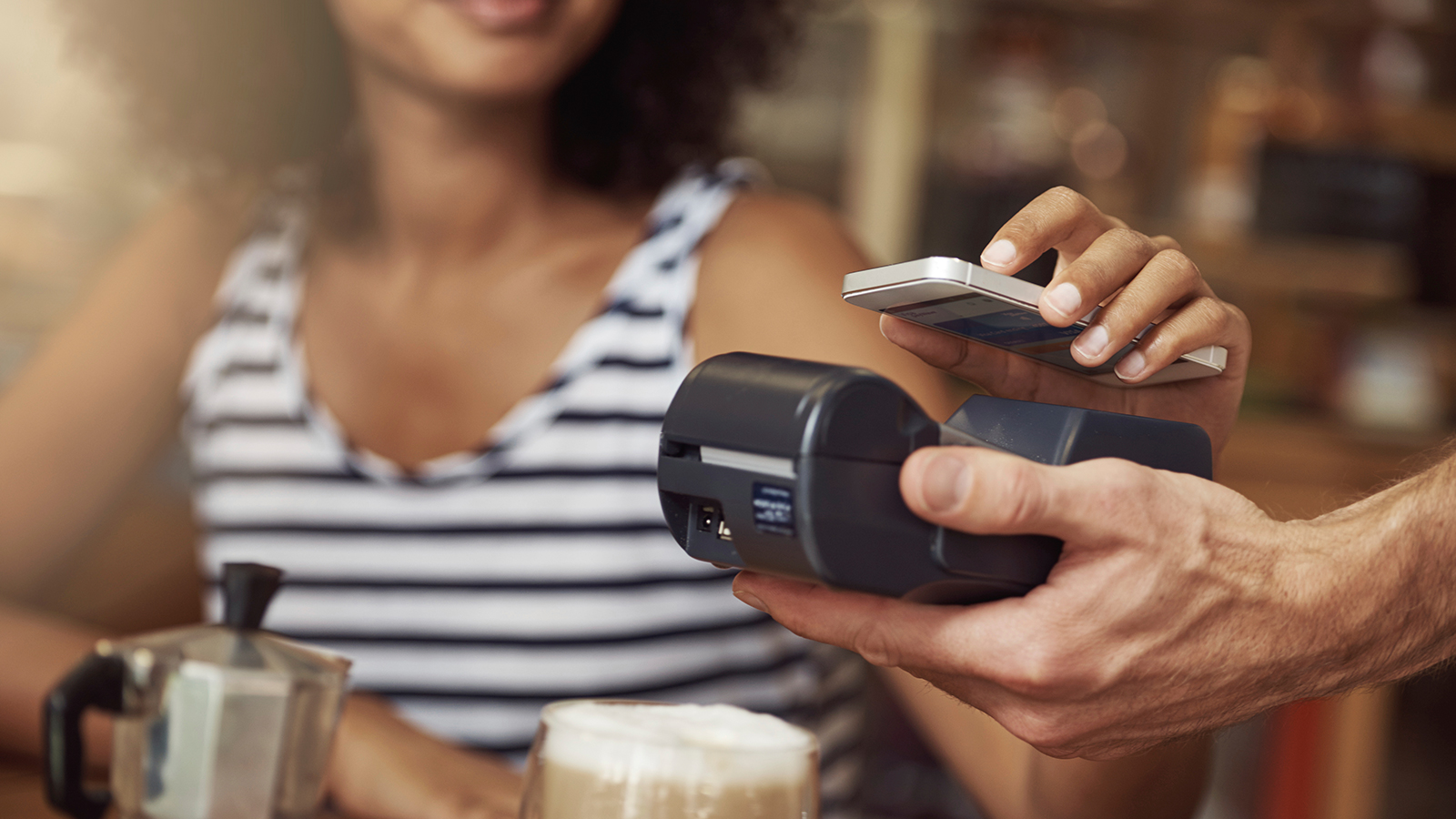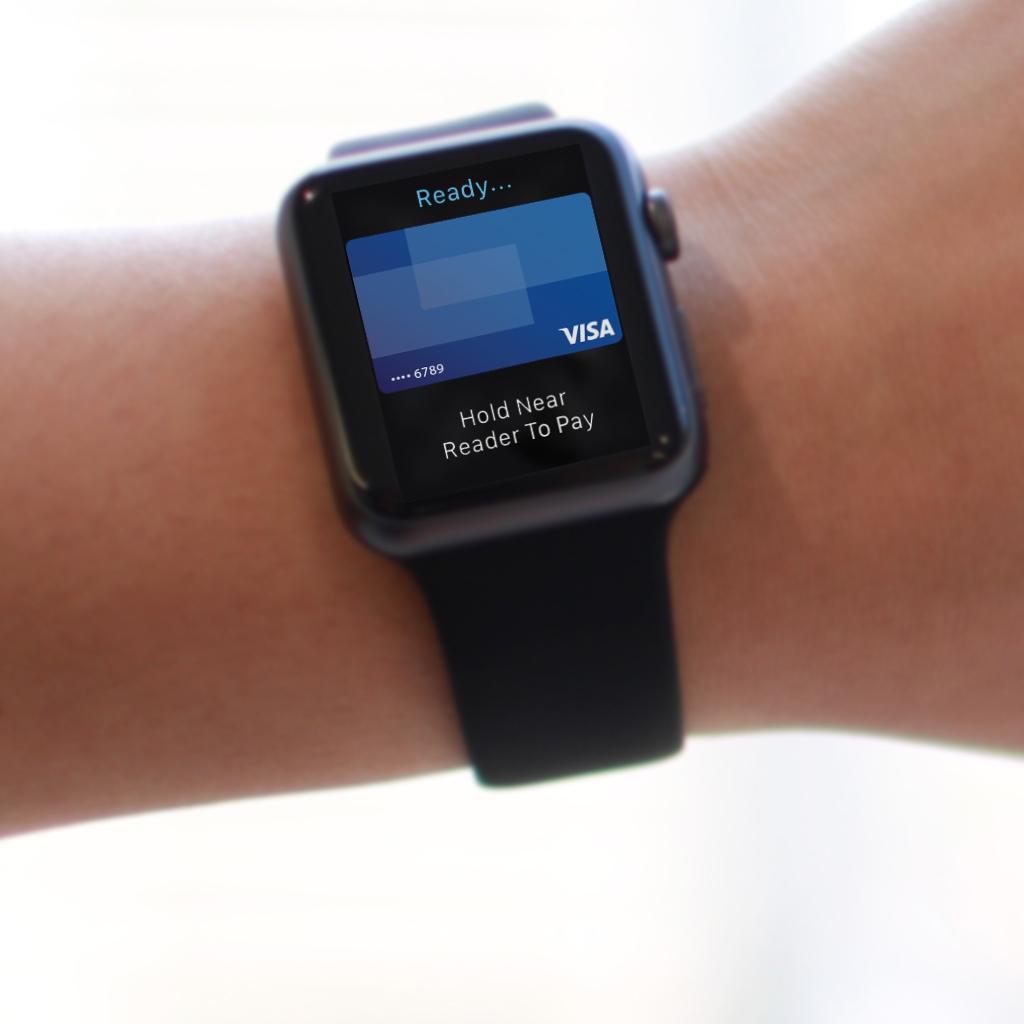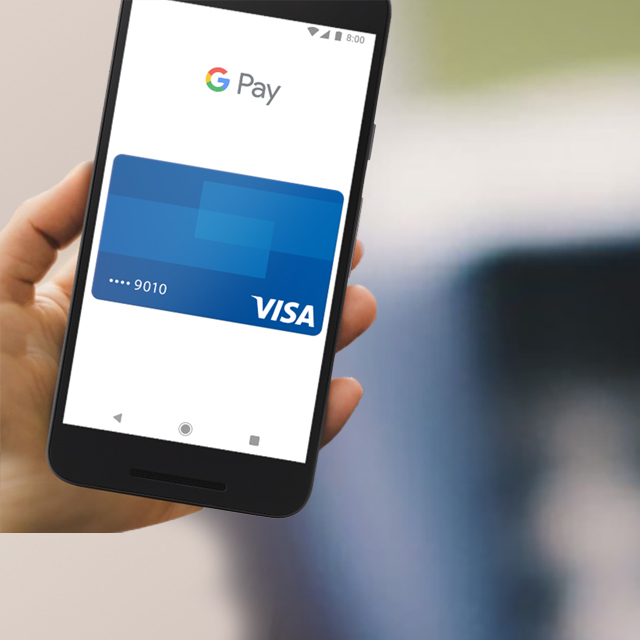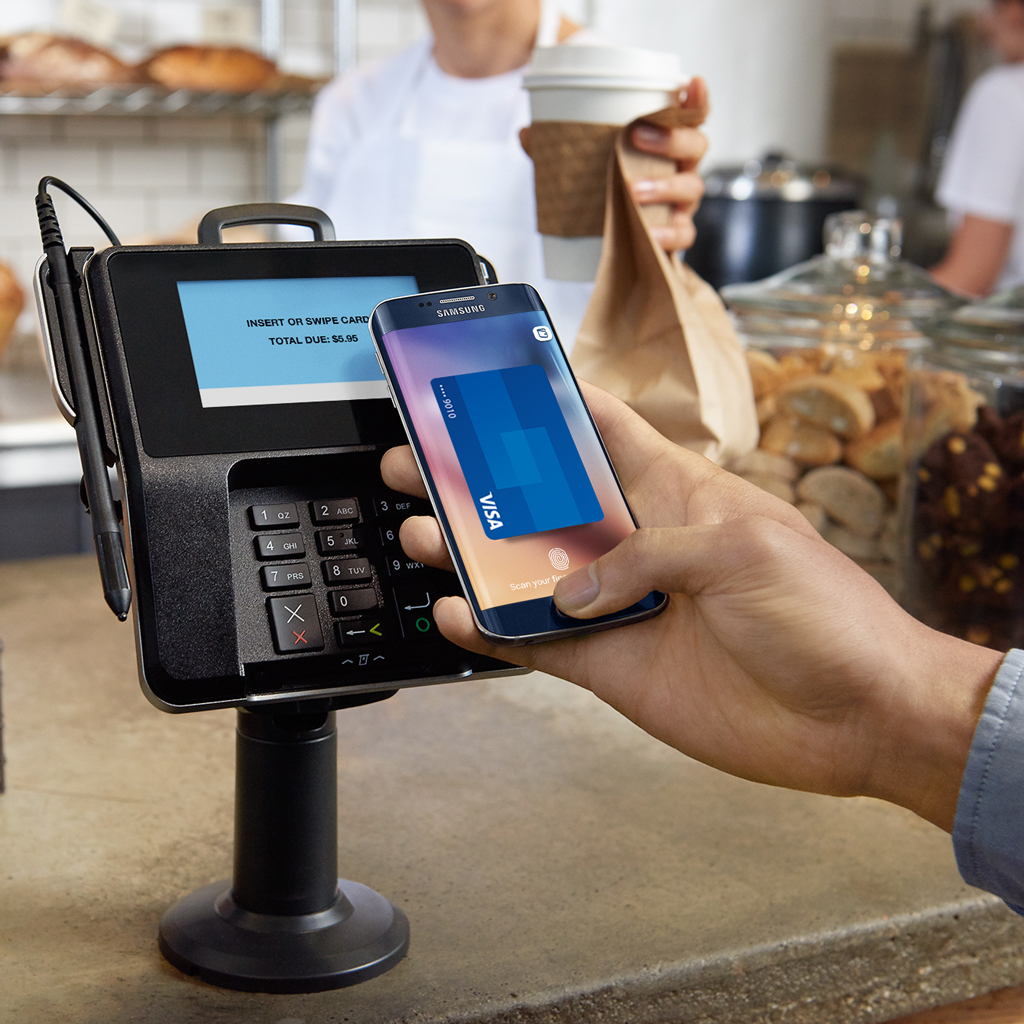Upgrade your POS terminals to accept Visa contactless transactions from leading mobile payment solutions.
A swifter checkout line
Contactless payments with Visa use an embedded computer chip to send payment information to a secure reader at the point of sale. Users may wave their card or device within 2.5-5 cm (1-2 in) of the reader to make payments.
How it works
Visa’s contactless payment technology lets users pay with just a wave of their card or device.
How to accept contactless payments
There are two ways to start accepting contactless payments with Visa:
- Install integrated terminals that include the Visa-enabled reader
- Add a peripheral Visa-enabled reader to your existing POS terminal
Benefits
Faster and more convenient electronic payments.
- Contactless payments’ speed, convenience and security can help boost loyalty while reducing abandonment
- No signature or PIN is required for most transactions under SGD $200, for added convenience
- Customers, on average, spend more than twice as much with Visa purchases as they do with cash payments. While the average US cash transaction is $17, credit card purchases average $66 1
- Improved efficiency moves checkout queues more quickly, and employees handle less cash, which in turn can lead to savings
- Enhanced security and reduced risk of fraud
1 Source: Visa Payment Panel Study (2Q11 – 1Q12). Visa Payment Panel Study was commissioned by Visa and has been conducted continuously since 1991 by independent research firm TNS among 20,000 respondents annually, aged 18+, and who own at least one payment card.
Q + A
Want to know more? Select any of the questions below for more detail.
-
Visa’s contactless payments solution is a payment feature that lets customers use their enabled Visa cards or mobile device at the point of sale (POS). The customer simply waves his card or mobile device in front of the secure reader at checkout, instead of swiping it or handing it to a cashier.
-
Visa’s contactless payments solution will help support future advances in mobile-based payments. Your customers won’t need to fumble for cash and coins, which can increase checkout speed and reduce lines. Additionally, most transactions under SGD $100 at participating merchants do not require a signature, speeding up the payment process.
-
Visa’s contactless payments solution offers the same security protection that you have today with traditional Visa payment products.
-
Yes. Visa’s contactless payments solution utilises multiple layers of security to protect transactions, including cryptography and secure network processing. Customers also benefit from Zero Liability for all unauthorised purchases made with their Visa contactless payment card or mobile device. Additionally, the card never leaves the customer’s hand during checkout, which provides added cardholder control and security at the point of sale.
Visa’s Zero Liability policy does not apply to certain commercial card and anonymous prepaid card transactions or transactions not processed by Visa. Cardholders must use care in protecting their card and notify their issuing financial institution immediately of any unauthorised use. Contact your issuer for further details.
-
Cards with Visa’s contactless payments solution need to be waved within 2.5 cm (1 in) of the secure reader and correctly oriented in order to be read. Only the secure readers at authorised merchants can process the information on Visa cards and devices with Visa’s contactless payments solution.
-
Yes. Visa, MasterCard, and American Express will all offer solutions that support the same standard for Radio Frequency (RF) cards-ISO 14443 A/B. Note that full specifications will differ across payment brands. To learn more about Visa’s contactless payments solution specifications, please contact your Account Executive or your acquirer.
-
To deploy peripheral contactless readers (PCRs) that plug into your existing conventional POS terminals, the payment application in your existing terminal must be modified to interface with the PCR. To learn more about specialty terminals, contact your Account Executive or acquirer.



